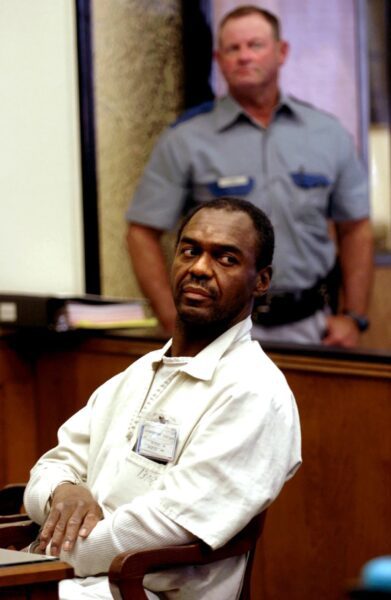◄►◄❌►▲ ▼▲▼ • B下一个新评论下一个新回复了解更多
With more than 40 American soldiers killed in Iraq since the “end” of the war, the World Liberator last week boasted of the “progress, steady progress” the United States has accomplished in what remains of that country. Meanwhile, the Liberator himself and his Secretary of State were planning yet another installment of liberation in Liberia.
We can reasonably expect that the liberation of Liberia will yield at least as much “steady progress” as that of Iraq.
But while the liberation of Iraq was mainly the achievement of the Israel Firsters who dominate the administration’s Middle East policy, the liberation of Liberia appears to be the work of yet another faction of 分裂的忠诚 的形状 国会黑人核心小组 and its racial comrades.
本月初 “华盛顿邮报” reported that President Bush’s interest in sending forces into Liberia to keep whatever “peace” emerges from the end of its 12-year old civil war is due in part to the “growing influence of an eclectic lobbying coalition” that includes the Black Caucus, the no-whites-allowed club of black members of Congress.[Trip Marks President’s Turnabout On Africa By Michael Dobbs, 华盛顿邮报, 7年2003月XNUMX日]
But it also shows the influence of Colin Powell, “the first African American to serve as the top U.S. diplomat,” and the administration’s other non-white hood ornament, national security adviser Condoleezza Rice, “another African American,” 作为 帖子was careful to describe them, who “has also played a role in igniting the president’s interest in Africa.”
It was her contribution to emphasize “the peculiar ties between America and Africa, dating back to the slave trade“ which she characterized to the 帖子 as “America’s birth defect.” The president, she said, “felt an obligation to ‘bring about reconciliation.'”
Mr. Powell has not yet tried to justify American involvement in Liberia by strumming the guitar of racial guilt, but he has invoked arguments equally flawed. Interviewed in the 华盛顿时报 last week, he had a mouthful to say about Liberia and why Americans should go there.
“In Liberia if you ask the question, ‘What is our strategic, vital interest?’ it will be hard to define it that way,” Mr. Powell told the 时. “But we do have an interest in making sure that West Africa doesn’t simply come apart.”
此外, “We do have a historic link to Liberia, and we do have some obligation as the most important and powerful nation on the face of the earth not to look away when a problem like this comes before us.” “We looked away once before in Rwanda, with tragic consequences. This is not 卢旺达,也不是 索马里“(the latter a rather sore subject for the advocates of triumphalist American “维和” 和 “国家建筑”).
Mr. Powell’s justification is perhaps the most expansive the administration has yet offered, although that doesn’t help much, since nothing he said makes sense.
Acknowledging that we have no definable “strategic vital interest” in Liberia, the secretary was thrown back on generalities and platitudes.
Yes, we may have “an interest” in the stabilization of West Africa, but it’s not a major interest, and it doesn’t justify sending troops.
Yes, the situation in Liberia is “tragic,” in the banal sense in which that word is now used, but that too fails to justify any American military commitment there.
我们确实有 “a historic link to Liberia”—it was founded as a dumping ground for ex-slaves—but that was 200 years ago, and it’s really not that much of a “link.” We have far more substantial “links” to Korea or Vietnam, but nobody thinks we should send troops back to those places.
最后,我们 “looked away once before in Rwanda,” when the locals happily massacred thousands of people of another tribe, and wasn’t it terrible “we looked away” and didn’t send troops to stop the killing?
Well, no, as a matter of fact, there was then and is today no reason whatsoever the United States should have sent troops into Rwanda—or any other place on earth simply to avoid “tragic consequences.”
“Tragic consequences” happen all the time, everywhere, including this country. They are part of the human condition, which is what real tragedy—the kind written by Sophocles and Shakespeare—tries to tell us.
What Mr. Powell and Miss Rice are saying is not only that 种族内 obligates us to use military force in Africa but also that we have the power to escape the human condition, to become in essence supermen, and remake the world the way we want it to be.
What real tragedy tells us is that when human beings try to do that, the result is—tragedy.
That’s what we should have learned in Vietnam and Somalia.
We are now in the process of learning it in Iraq. Soon we will be learning it again—in Liberia.

 RSS
RSS







